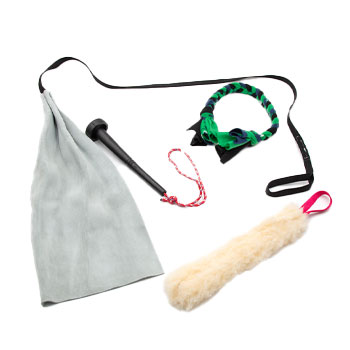August 01, 2023
My puppy stared at me when I pushed her off the couch, is this a sign of dominance and if so, how should I handle it?
Full Question:
I have a 5-month old malinois mix as a house pet. I want a calm submissive dog in the house. I use your streaming service to build trust and engagement. She loves games, waits patiently at all doors, makes eye contact, and is crate trained, and has learned the “place” command. I also let her jump on the furniture at her own discretion. I watched your video on Pack Structure and I’ve decided I only want her on the couch if I allow it. She jumped on the couch (and on me) and I told her “off” and pushed her off the couch. She sat on her “place” but she was staring at me in a way that seemed to say “I’m not entirely buying into the idea that you are the pack leader.” It wasn’t the kind of eye contact she gives in engagement games when she seems to be saying “teach me.” So we had a long staring contest (I didn’t say or do anything), but kept staring, and then she laid down and went to sleep. At these times, should I get into a staring contest, or should I look away and ignore her?
 Cindy's Answer:
Cindy's Answer:
I would say that a 5-month-old dog is not likely to be staring because of dominance. I think the best thing to do is keep her on a leash so you can prevent her from getting on the furniture BEFORE she does it and then direct her to her place.
Personally, I ignore my dogs during this kind of thing. It's usually because they are trying to get some sort of interaction as opposed to any kind of challenge. I don't make a big deal of it. I just go back to my book or whatever I was doing and as long as they are staying on their bed I don't give any attention one way or the other.
Personally, I ignore my dogs during this kind of thing. It's usually because they are trying to get some sort of interaction as opposed to any kind of challenge. I don't make a big deal of it. I just go back to my book or whatever I was doing and as long as they are staying on their bed I don't give any attention one way or the other.
100% (9 out of 9)
respondents found this answer helpful


Can't find what you're looking for?








